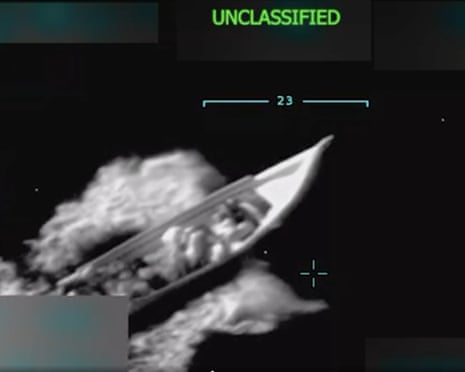Maduro meets Trump’s envoy as US Military operations in the Caribbean escalate
Nicolas Maduro, Venezuela’s leader, hosted Richard Grenell, a special envoy from former US President Donald Trump, at his presidential palace, Miraflores, in Caracas. There was a controversial incident that occurred on September 2, in which Trump publicly shared a video showcasing a luxury, four-engine speedboat being destroyed by an intense explosion. The ex-president alleged this incident, showing a bright blaze engulfing the vessel, was recorded on the same day and depicted an American military operation that eradicated the boat and its 11 occupants from a drug syndicate known as Tren de Aragua.
Trump’s narrative got complicated due to lack of supporting information. The precise location of this event was not revealed. Neither was there unequivocal evidence made available showing that the boat was transporting narcotics intended for the US or that the individuals on board were involved in drug trafficking. Scrutiny over the legality of this lethal action erupted, prompting a blunt response from Vice President JD Vance.
JD Vance, remaining defiant in the face of questioning, was of the opinion that targeting drug traffickers, whom he views as enemies to the state, was the highest priority and proper usage of America’s military strength. In his opinion, such operations were justifiable and should be anticipated in the future. Pete Hegseth, who oversaw what was formerly termed the Department of Defense and is now known as the Department of War, echoed these sentiments, portraying the operation as a necessary defensive measure against those intending to ‘contaminate our nation with illegal drugs.’
But the shift in the focus of U.S. military towards the Caribbean region deserves our attention. Why are we witnessing the accumulation of naval power, including numerous ships and a multitude of sailors, off the coastlines? Why the audacious strike? A closer inspection might reveal the true objectives of the Trump administration and potential discord within his coalition that could potentially jeopardize plans in Latin America.
A key figure in these operative changes is Grenell, who holds a prominent anti-NATO and ‘America First’ stance. He argues that maintaining a peaceful relationship with Latin America is the most effective strategy for the U.S. to assure access to vital resources in an increasingly fractured world.
Maduro, lacking substantial alliances in Latin America aside from those who advocate for Caracas based on sovereignty principles, might welcome negotiations with the commercially driven factions of the Trump administration. Trump openly stated it was his directive that resulted in the bombing of the speedboat, marking it as the deadliest U.S. military operation in Latin America since the Panama invasion of 1989.
In his own words, ‘It’s a war. It’s a war on murderers. It’s a war on terrorism,’ Senator Rubio shared his perspective. By transferring the controversial rationale applied in Gaza – that of justifying unrestrained extrajudicial killings through an extended definition of self-defense – into the American continent, Rubio is treading on thin ice.
Despite this, Maduro has expressed a degree of respect towards Trump, possibly a genuine sentiment. Yet, the strategy Rubio has taken regarding Venezuela could be setting him up for failure. Trump operates in the ambiguous space between Rubio and Grenell, speaking with audacity but leaving room for potential deals.
Following the speedboat incident, the Pentagon called for the positioning of 10 F-35 stealth fighter jets in Puerto Rico, set to conduct more assault operations targeting presumed cartel activities at sea and on land, including in Venezuela. As Trump faces increasing domestic pressures, his propensity to execute foreign military operations may rise accordingly.

